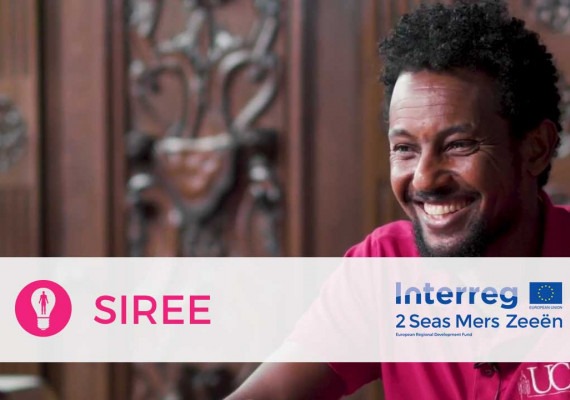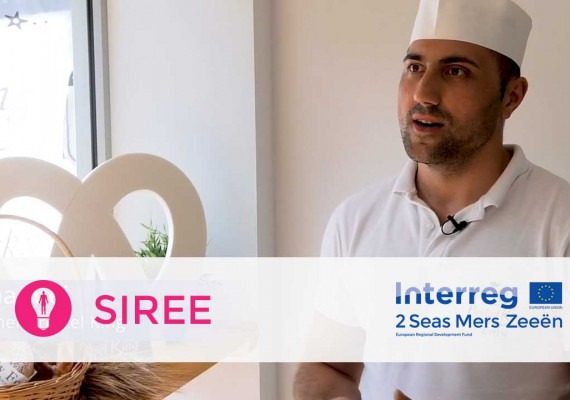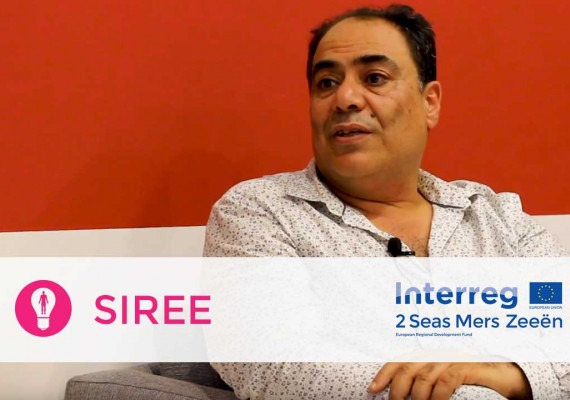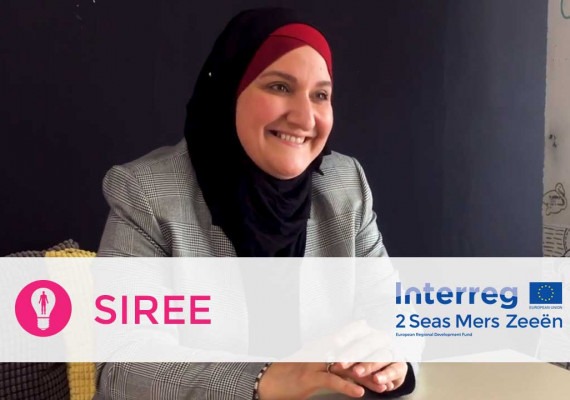SIREE
Social Integration of Refugees through Education and Self Employment
Priority Axis
Technological and Social InnovationSpecific objective
Social Innovation
Lead partner
University of GreenwichContact
Start Date
01/03/2018End Date
31/12/2021Project budget
4 866 002 €ERDF amount
2 919 601 €ERDF rate
60%About
Common challenge
As over 1.2million refugees arrived in Europe in 2016, 147,815 within the 2 Seas region, plus 1.5million arrivals in 2015. This relatively sudden and sustained increase in mostly young male population increased the demand for local services.
The 2 Seas regions aim to achieve economic and societal integration (the Europe 2020 goal of social cohesion) but struggle to cope with a mounting cost to the public purse of 10,000 refugees per year and the lost economic potential contribution to the region.
The failure of regions to achieve integration risks political polarisation. Refugees face hidden challenges, only 50% of refugee children attend primary school, many have missed several years of schooling and find it difficult to integrate into the new system. Educational professionals often hold the negative perception that refugee parents do not care about their children’s education because of their perceived lack of “active” involvement.
Refugee education and the training of teachers has been shown as important in improving social integration. Yet also, refugees cannot be treated as a homogenous group.
The SIREE project sought to tackle this challenge by focusing on the education and self-employment of members of the refugee family. Research showed that ‘Investing 1 euro in welcoming refugees can yield nearly 2 euros in economic benefits within five years’.
Overall objective
Main outputs
Cross border approach
Main Achievements
Refugees and migrants have long experienced negative media attention, but this increased with over 1 million people arriving on European shores in 2015. In response, SIREE (Social and Economic Integration of Refugees through Education and Self Employment) aimed to highlight the value that migrants bring to society, instead of the cost. The project looked at the value a family unit brings when it is better integrated into the education and entrepreneurial systems in its new home countries of France, Belgium, The Netherlands, and the UK. Co-creation was essential in this project – ensuring that actions were designed in collaboration with the people they impact.
‘Learning Communities’ (groups of parents, students, and teachers) were set up to facilitate discussions and actions to create inclusive educational environments, with 590+ meetings taking place over the project. In this respect, the partnership reached 300% more people than planned. They created impactful, long-lasting actions, such as learning centres, a podcast about integration, a guide supporting migrant students, films for parents to explain a school day and "Plats Divers" included cooking workshops and a cookbook.
In the teacher training courses, the 3 educational institutions which delivered the programme and module for the SIREE project will keep them in their curriculum.
In entrepreneurship, 47 people registered their businesses legally. There were many individual success stories which were highlighted in the outputs.
SIREE In Action continued in 2021 and brought to life the stories of those involved in the project and helped to spread the message to show refugees and migrants should be included within societies.
The learnings and successes of the project were published in an eBook and 3 demonstration guides written collaboratively by partners, which aim to help organisations replicate the project and use the tools developed to enhance social integration.
Four policy makers have signed a letter to pledge to recognise the needs of newcomers in policies based on the SIREE learnings, so the project will have a legacy across the 2 Seas.




